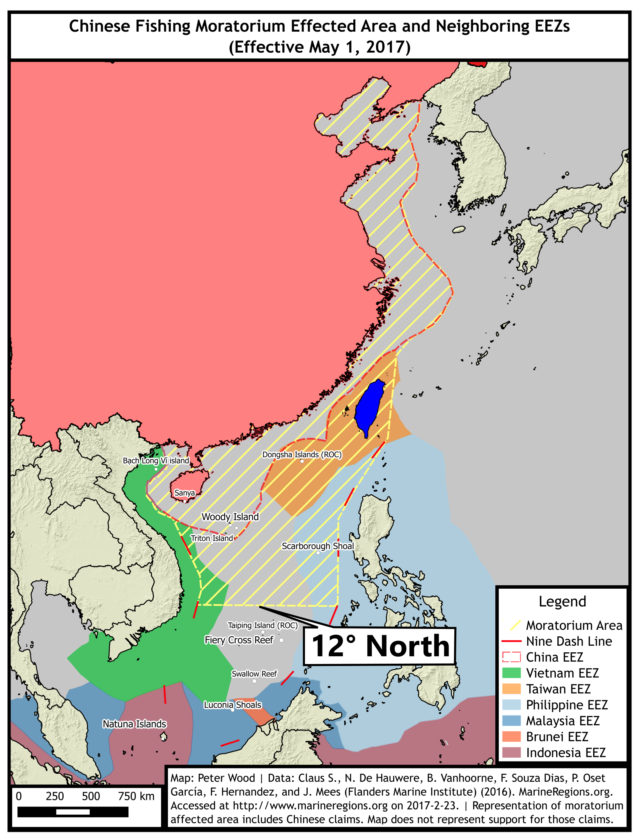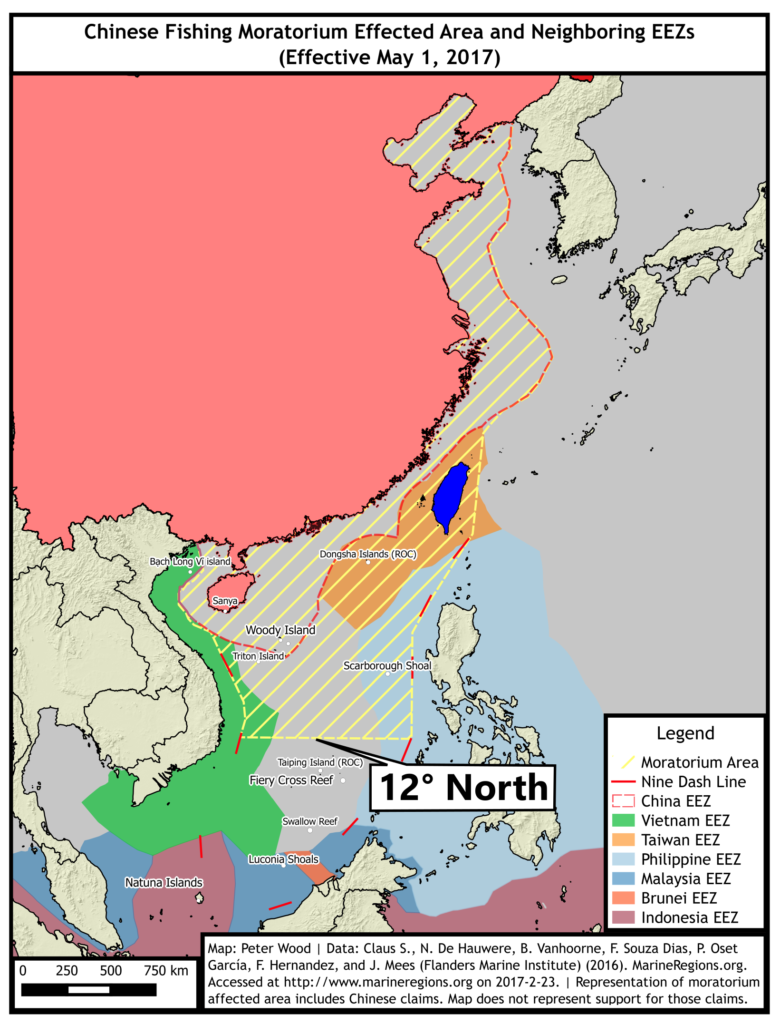By: Peter Wood
On February 6, China published “Central Document No. 1”, its annual statement of agricultural policy. Two weeks later, on February 20, China’s Ministry of Agriculture (MOA) announced that it will begin its annual moratorium on fishing starting on May 1 (MOA, February 20). Though on the surface somewhat innocuous, China’s agricultural and fishing policies are increasingly intersecting with its broader national security objectives. Both issues are connected by a view of national security that pulls together traditional security issues with domestic stability, economic issues and food security.
This connection can be seen in Chinese President Xi Jinping’s articulated vision of security. On February 22, Xi presided over a “National Security Work Conference” in which he continued his elaboration of his “Overall Security Concept (总体安全观) (81.cn, February 21). Peking University International Relations Professor Ye Zicheng (叶自成) explains that Xi’s concept brings together a full range of issues, both traditional (foreign policy and military security) and economic (such as food security) (PKU, April 19, 2016). Domestic economic realities will increasingly affect Chinese external security decision-making.
Most attention to Chinese security policy is given to its military development and foreign relations, particularly the eastern and southern axis encompassing Taiwan, Japan, and Southeast Asia. However, the most important “direction” for Chinese security thinkers is internal (内). Unsurprisingly China spends more on its stability maintenance budget (维稳) than it does on national defense (China Brief, March 6, 2014). Internal security brings sources of potential disruption into sharp focus, including social inequality and land distribution. This casts agricultural and fishing policies in a new light and makes understanding these policies more important.
Agricultural policy, for example, intersects with concerns about domestic stability and food security. Despite rapid urbanization, 44 percent of Chinese citizens still live in the countryside (World Bank, 2015 [Accessed February 20]). Improvements in the lives of China’s farmers has accounted for a significant proportion of the decrease in those living in the poverty line. However, the growing disparity in wealth is a source of tensions, contributing to issues such as rising crime rates and drug use (See China Brief, February 6 and September 4, 2015, for discussion of these issues). Increased crop production and ensuring market stability are linked with raising farmers incomes. With rural governments already under budget strain and crime in the countryside on the rise, the success or failure of these policies will have a direct impact on Chinese social stability.
Though the focus of Central Document No. 1 is rural development and ways to increase the welfare of China’s farmers, one section in particular is noteworthy: continual increases in grain production to ensure food security. China’s ability to produce sufficient food for itself is under threat from pollution, urbanization and desertification. Though China has been able to produce most of its own grain, the issue remains a core concern for Chinese leaders, as highlighted by its inclusion in the 2015 National Security Law (国家安全法). According to Article 22: The State completes a food security safeguard system, protecting and improving the overall food production capacity, improving the system for food reserves, the transport system, and market regulatory mechanisms; completing early warning systems for food security, ensuring security food supplies and quality (ChinaLawTranslate.com, MOD.gov, July 1, 2015).
These concerns have prompted Xi Jinping and others to call for a reorganization of Chinese land, the collection of smaller plots into larger ones, and the reorganization of small towns in favor of larger ones to free up land. Such policies will see greater emphasis ahead of the 19th Party Congress as Xi and other leaders attempt to deliver policy successes before the meeting.
While Document No. 1 has primarily a domestic effect, China’s fishing moratorium also affects Chinese external security and diplomacy. The moratorium is meant to protect China’s stocks of fish by allowing time for the fish to breed. However, the scope of the regulation directly impacts China’s relations with its neighbors. Notably, the moratorium will curb fishing above 12 degrees of latitude, roughly halfway between the northern and southern halves of the South China Sea (see map). Given China’s territorial claims as demarcated by the “Nine-Dash Line”, the moratorium will cover much of the Philippine and Vietnamese Exclusive Economic Zones in the South China Sea. Chinese territorial claims are frequently backed up by Chinese Coast Guard vessels, meaning that the moratorium would essentially cut-off much of China’s neighbors from prime fishing spots. Unsurprisingly then, Vietnamese Foreign Ministry spokesperson Le Hai Binh responded to the moratorium, stating that “Vietnam resolutely opposes and rejects the regulation issued by China” (VNExpress, February 28). This fishing policy becomes a method for Beijing to protects its food security by ensuring stocks of fish, but also carries over into foreign policy, by acting as a way to enforce its territorial claims in the South China Sea.
Access to fish has even been a bargaining chip in China’s dealings with its southern neighbors. The Philippines made guaranteed access to Scarborough Shoal a condition of its broader rapprochement with China over the summer of 2016, and Philippine fishermen were able to access the area shortly after President Duterte’s meeting with Xi Jinping (Rappler, [Philippines] October 28, 2016). Chinese and Philippine Coast Guards established a hotline as part of the establishment of a Joint Coast Guard Committee (Philippine Coast Guard, February 22). Chinese fishing vessels are also clashing with other governments further afield as they look for untapped shoals, sometimes without other nations’ permission. Indonesia has sunk has sunk hundreds of captured Chinese fishing vessels caught operating illegally in its waters (March 25, 2016). On the other side of the world, an Argentinian Coast Guard Vessel even sank a Chinese fishing ship after repeated warnings about operating in Argentine coastal waters (Global Times, March 17, 2016).
The role of Chinese food security policy in its broader national security concept deserves greater attention. Domestically, Chinese leaders are under pressure to deliver economic benefits to their rural citizens while reforming Chinese agriculture to protect China’s ability to feed itself. Similarly, China’s demand for fish is quickly exhausting local stocks, but regulations—if enforced without negotiation with China’s neighbors—will quickly bring tensions to a head over this limited resource.
Peter Wood is the Editor of China Brief. You can follow him on Twitter @PeterWood_PDW


No comments:
Post a Comment